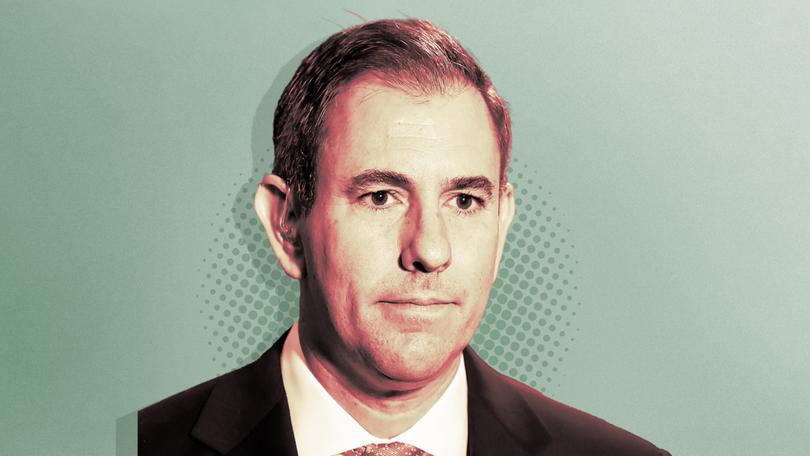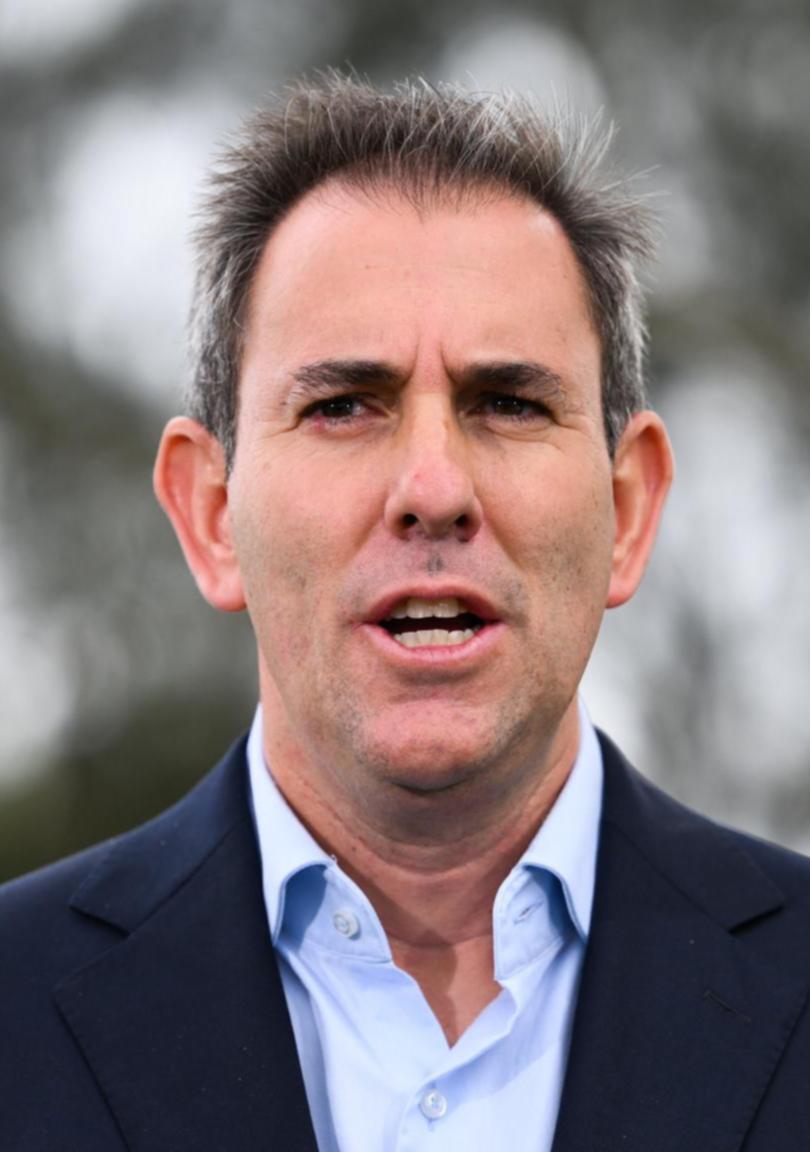ELLEN RANSLEY: Expert forecasts Labor’s controversial tax change could affect half of all super accounts
ELLEN RANSLEY: Jim Chalmers’ ‘modest’ but controversial super tax changes could wind up hitting 50 per cent of accounts as the Treasurer pushes indexation onto a future Government.

Jim Chalmers’ “modest” but controversial super tax changes could eventually hit 50 per cent of accounts as the Treasurer pushes indexation on to a future Government.
Under the changes announced two years ago, which were not supported in the last Parliament, earnings on superannuation balances over $3 million would be taxed at 30 per cent, up from 15 per cent.
Dr Chalmers maintains it would only impact about 0.5 per cent of Australians with superannuation accounts, or about 80,000 people, and on Friday defended the changes as “modest”.
Sign up to The Nightly's newsletters.
Get the first look at the digital newspaper, curated daily stories and breaking headlines delivered to your inbox.
By continuing you agree to our Terms and Privacy Policy.“It’s responsible, it is modest. It only applies to a tiny sliver of people in superannuation, and it’s still concessional,” he said.
But under modelling by AMP senior economist Diana Mousina, without indexation a 22-year-old in 2025 who earns average wages for the rest of their life will hit the $3m threshold by the time they turn 64.
That doesn’t take into account inflation, additional contributions, and is based on conservative returns.
She told The Nightly that what only impacts 0.5 per cent of the population now could grow to impact more than 50 per cent in 40 years’ time.
Dr Chalmers on Friday said such analysis assumed “wrongly that no Government of either persuasion will change that threshold”.
“Governments of either political persuasion into the future can take decisions to lift the threshold. We’ve seen that, as I said, in other parts of the tax system,” he said, alluding to income tax brackets.

But Ms Mousina said the problem with that kind of assumption is there’s no guarantee it would happen.
“Is it just going to be an additional tax that’s put on people who are saving for their retirement? We already have a very progressive tax system, so is this just another tax burden on individuals, rather than thinking more holistically about the tax system,” she said.
“I don’t have a problem with putting the tax on, but the long term indexation is a problem.”
Liberal senator Andrew Bragg, a vocal critic of the super tax changes, has also warned that the lack of indexation would “particularly hurt millennials”.
“The lack of indexation means that they will ultimately pay a bigger price than older people like the boomers,” he said on Friday, warning the taxing of unrealised gains risked creating a “dangerous precedent”.
“We will do everything we can to stop it in the senate, but we’re realistic about the Labor Greens alliance.”
Ms Mousina said it would be “better policy” if the Government made a plan for indexation now, as the Greens — whose votes Labor will need in this parliament to pass the legislation – have been calling for.
One option was for the threshold to be indexed to around wages growth, but Ms Mousina said that would be unlikely as that would not grow the pool much beyond the top 0.5 per cent of superannuation balances, which would hamstring the revenue generating exercise.
The alternative is to increase the threshold so that in 10 years, it will impact two to 2.5 per cent of people.
“That’s probably, I think, the best way to go around it so that the Government does bring in more revenue through lowering tax concessions in super, but at the same time, is still doing it in a way that is not squeezing average income earners over time,” she said.
She said baking in indexation to the legislation would not just make for better policy, but would “give people more clarity”.
“It would take out a lot of uncertainty and also a lot of potential tax avoidance,” she said, pointing to reports people were selling down investments so as to not breach the cap down the road.
Due to come into effect on July 1, in its first year the changes would result in an extra $2.3b in the Government’s coffers in 2027-28.
Over a decade, that would rise to $40b.
Dr Chalmers says that’s money that would fund Labor’s progressive priorities.
“This is an important part of our efforts to make the budget more sustainable, and to fund our priorities, including strengthening Medicare, providing cost-of-living relief,” he said.
In what could wind up being one of the first big tests for what the new Greens leader Larissa Waters has dubbed a “progressive Parliament”, Labor expects the minor party to ultimately support the legislation.
Senator Waters on Friday said the party at this stage retained the position of wanting indexation, and for the threshold to be lowered to $2 million.
Dr Chalmers says Labor is “not considering” lowering the threshold.
After being unanimously elected as leader on Thursday, Senator Waters has signalled a more cooperative approach with Labor, pledging to be “firm but constructive”.
“I’m a different person to Adam Bandt,” she said on Friday morning.
“I’m proud of our broad policy platform… we won’t change that. But I am a different person and I bring a different style. I really want to get outcomes.
“I really want to work with the current Government to try to improve people’s lives and protect the planet.
She said the party would “look at everything on merits”.

